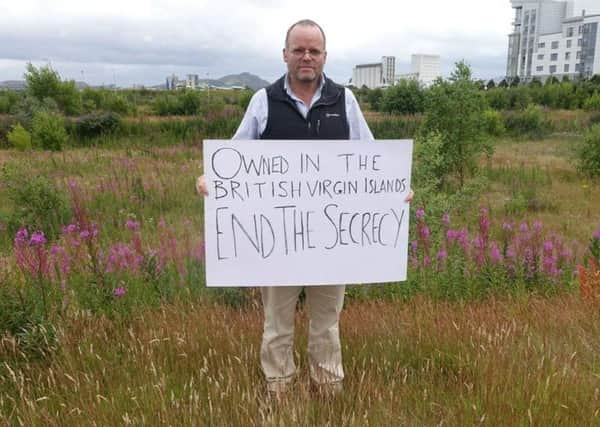Andy Wightman: Reform needed to meet Edinburgh's property needs


Edinburgh has a housing problem. House prices are the highest of any Scottish city. They rose by five per cent last year and, at almost six times average incomes, are the most unaffordable.
The value of residential land in Edinburgh has doubled since 2009 and rose by 17 per cent in 2015 alone. At the same time the city has the third lowest level of social rented housing in Scotland and rents in the private sector soared by over eight per cent last year.
Advertisement
Hide AdAdvertisement
Hide AdSo the city needs a bolder approach to this problem. Let me give two examples.
DOWNLOAD THE EDINBURGH EVENING NEWS APP ON ITUNES OR GOOGLE PLAY
At the Waterfront in Edinburgh lie large swathes of vacant land that was all meant to have had homes built on it by now. The financial crash in 2008 put a stop to that as the developers got their fingers burnt by the collapse in the property market.
Today, much of that land still lies unused, much of it is owned in tax havens such as the British Virgin Islands and none of it pays any local property taxes. Because this land is not being developed by the owners, it no longer forms part of the City’s “effective” housing land supply – which is why there is so much (unnecessary) pressure on the greenbelt to the south and west of the city.
Advertisement
Hide AdAdvertisement
Hide AdThe solutions here are very simple. Once land is allocated for housing and the owner fails to develop it, councils should have the power to acquire the land at its original value and get on with the job of building social, affordable and private housing for ownership and rent.
The land should also be liable for non-domestic rates right now. It is crazy that hairdressers, pubs and offices in Edinburgh all have to pay rates but companies in offshore tax havens pay nothing whilst speculating on future land values.
While it is important to build new, affordable high-quality homes, it is also vital to better protect those who live in private rented accommodation. The story of the 200 residents of Lorne Street who have been threatened with eviction by the Agnes Hunter Trust highlights weaknesses in Scotland’s system of private rented accommodation.
The only reason these families were given notices to quit was because the landowner wanted to sell them. A new law passed by the Scottish Parliament in March will give private tenants greater security but it still allows tenants to be evicted if the owner wants to sell up. An amendment by Green MSP Patrick Harvie which would have stopped this was voted down.
Advertisement
Hide AdAdvertisement
Hide AdIn Germany that would seem very odd. For example, the owner of flats in Hamburg can sell them to another owner but the idea that the tenants would be evicted in the process would be ridiculous. If you sell rented property, tenants stay put in their homes.
So, whilst house prices have soared in Scotland and plunged families into more debt, house prices in Germany today are no greater in real terms than they were in the early 1970s and yet Germans live in higher quality housing that is cheap to heat, more roomy than Scottish homes and which is designed to last at least twice as long.
These are exactly the kind of reforms which the next Scottish Parliament could lead on. Green MSPs will be arguing that Holyrood needs to be much bolder to meet the housing needs of people across Scotland. Housing is a human right. Everyone deserves an affordable home.
• Andy Wightman is a Green candidate for Lothian in the Scottish Parliament elections and the author of The Poor had no Lawyers.